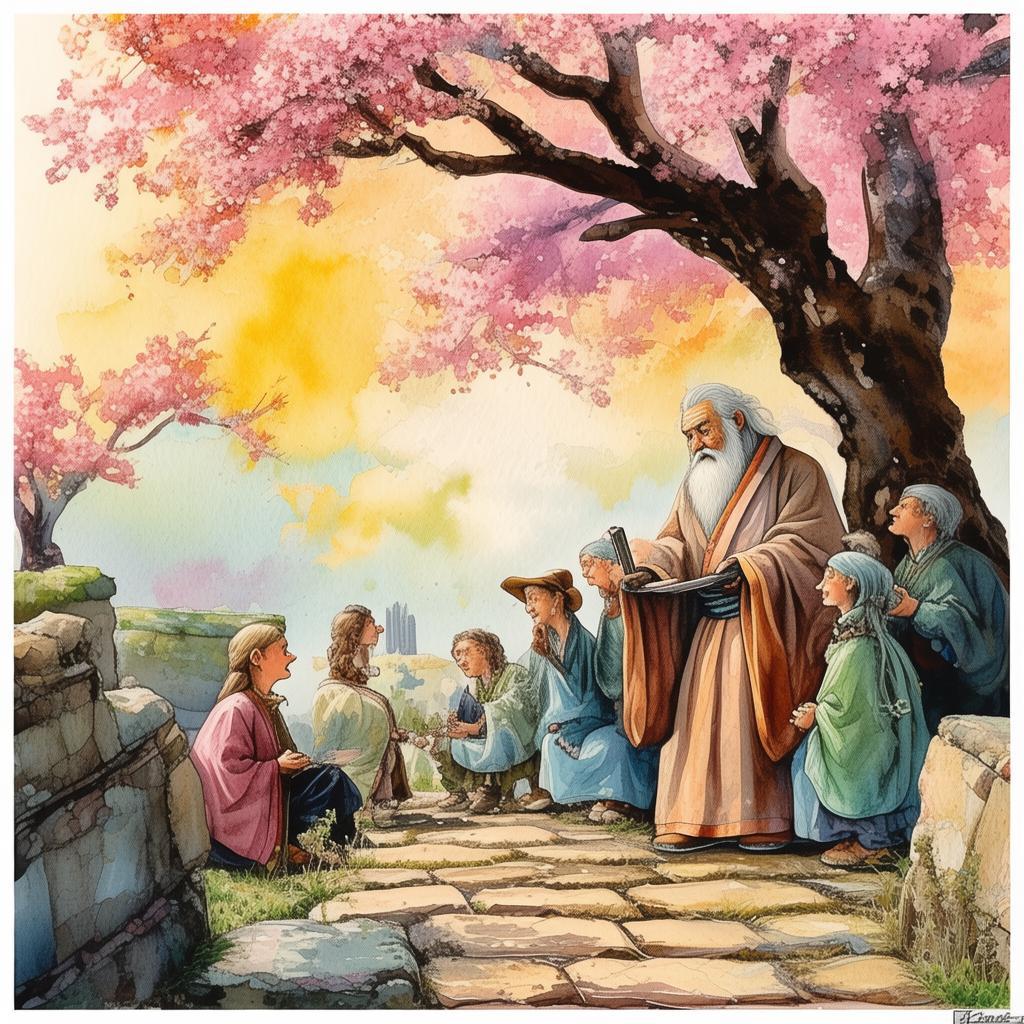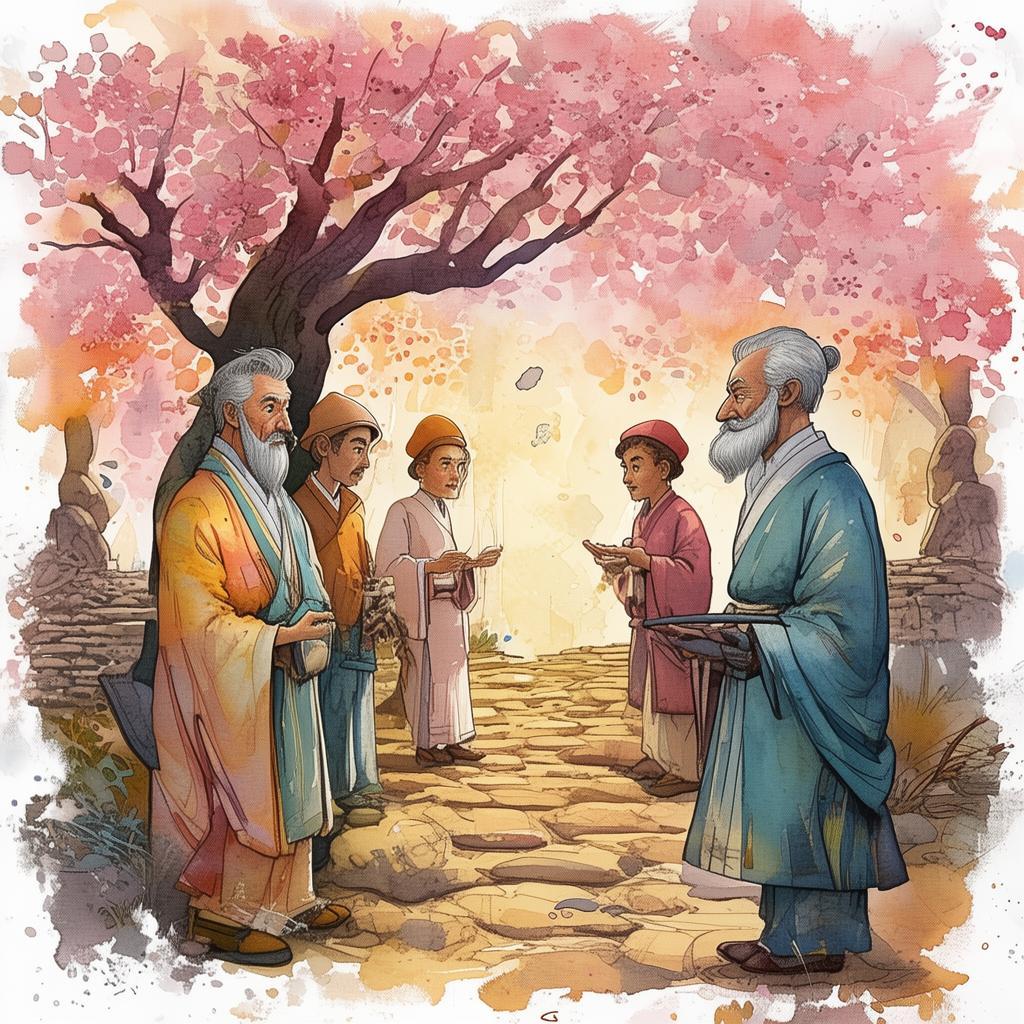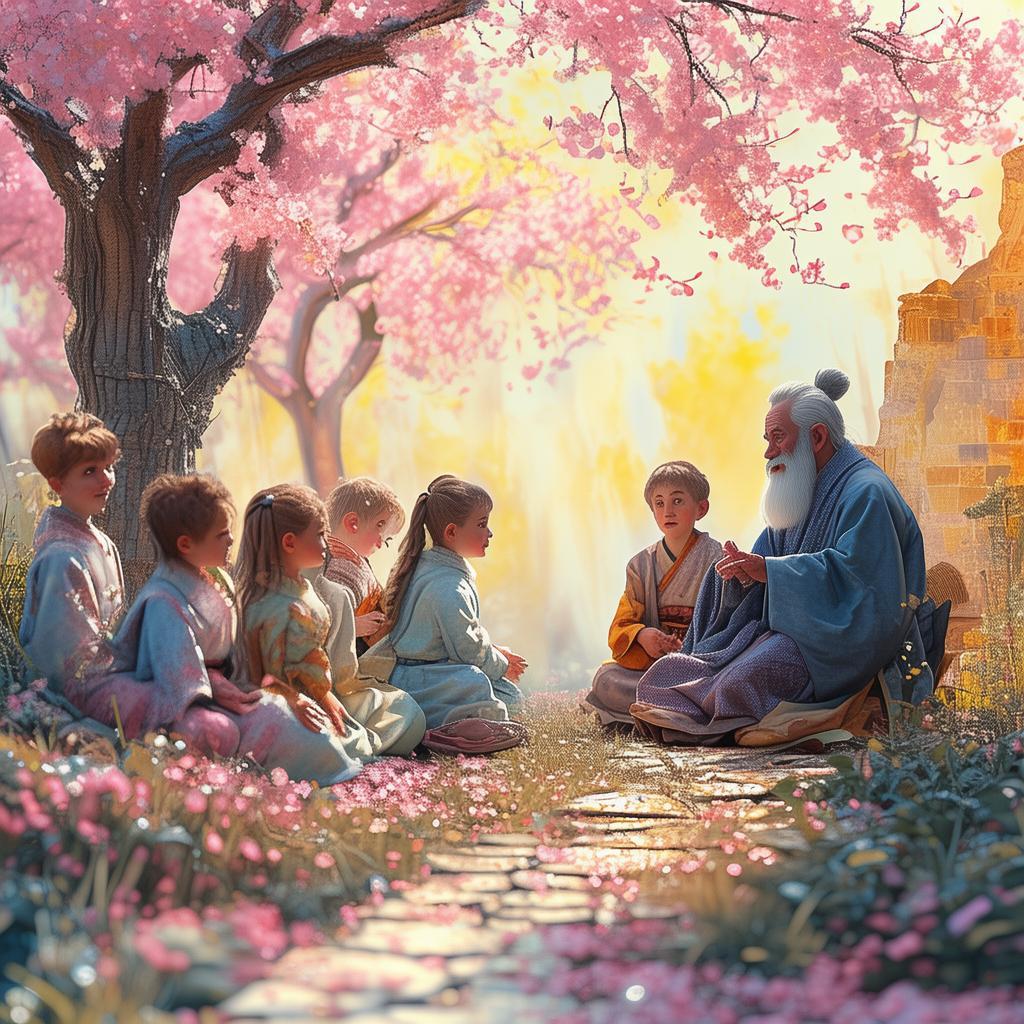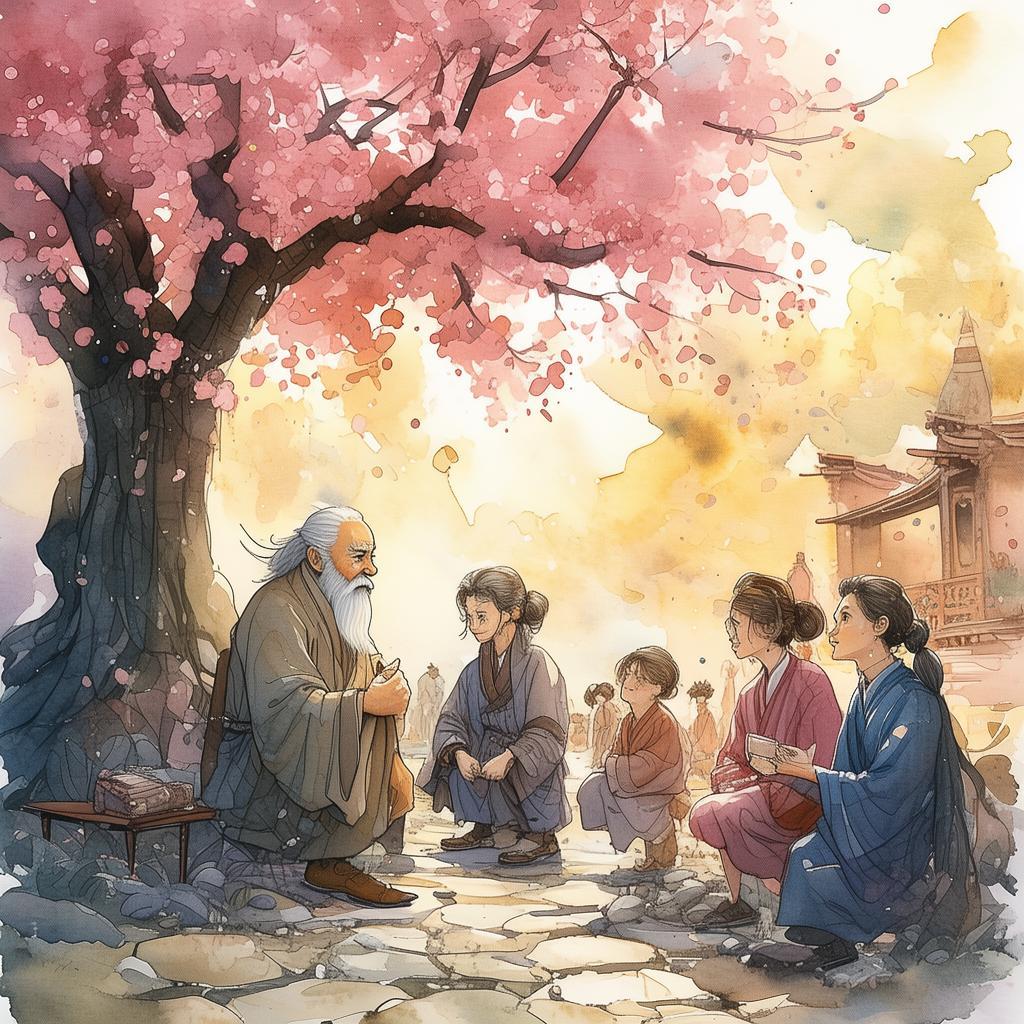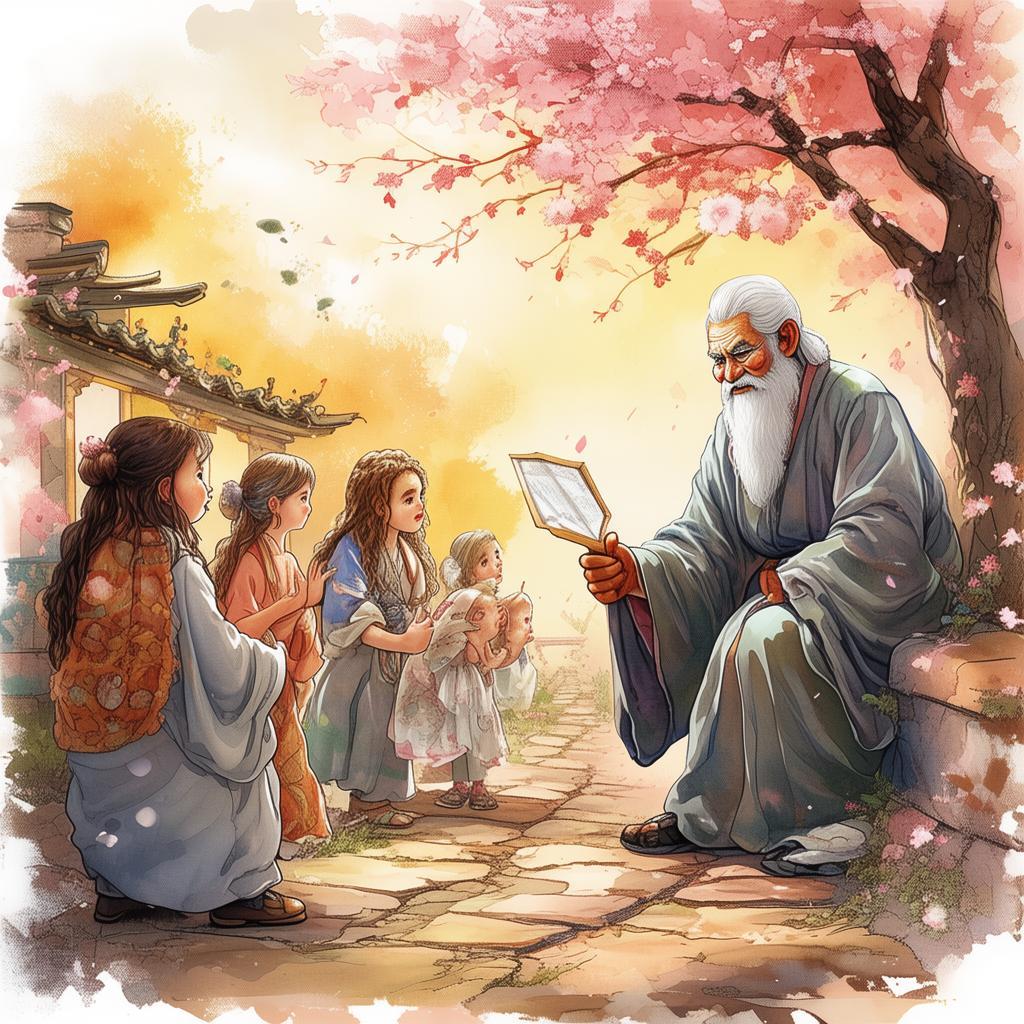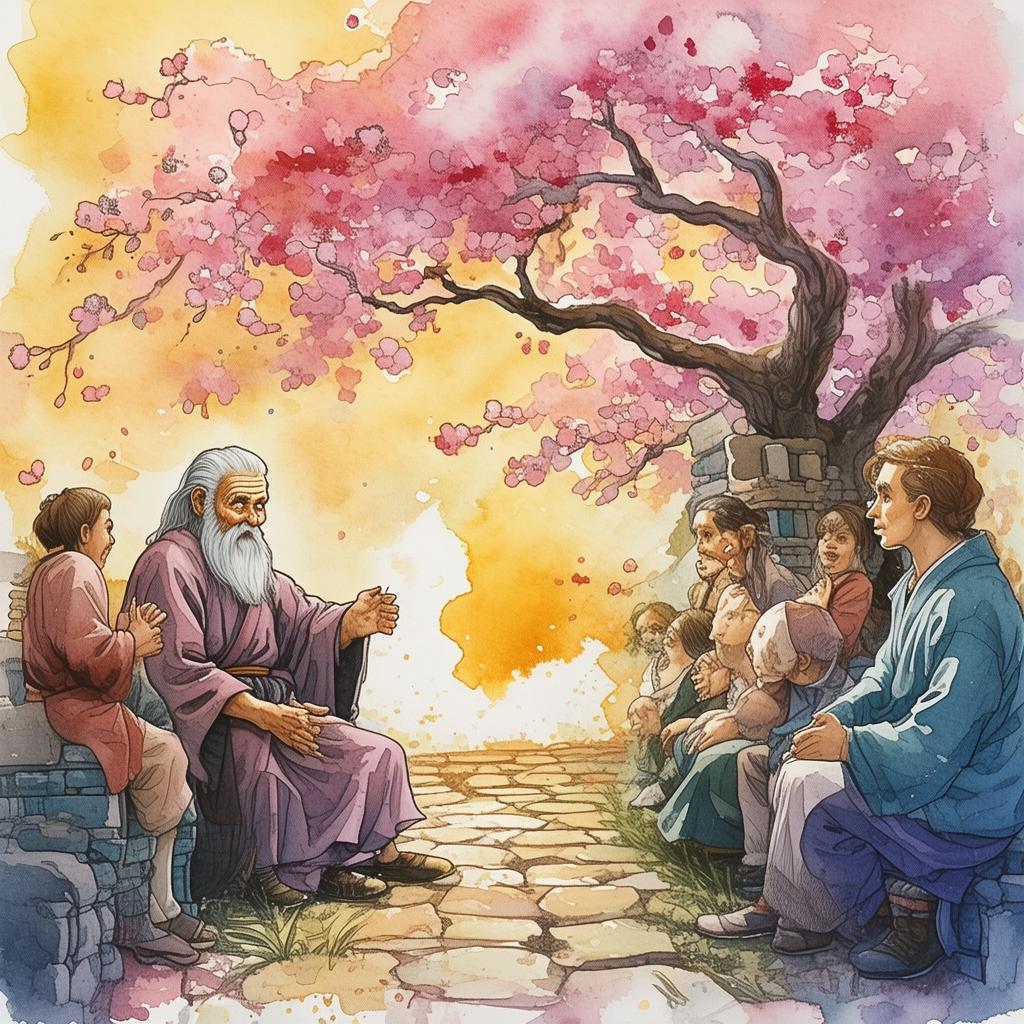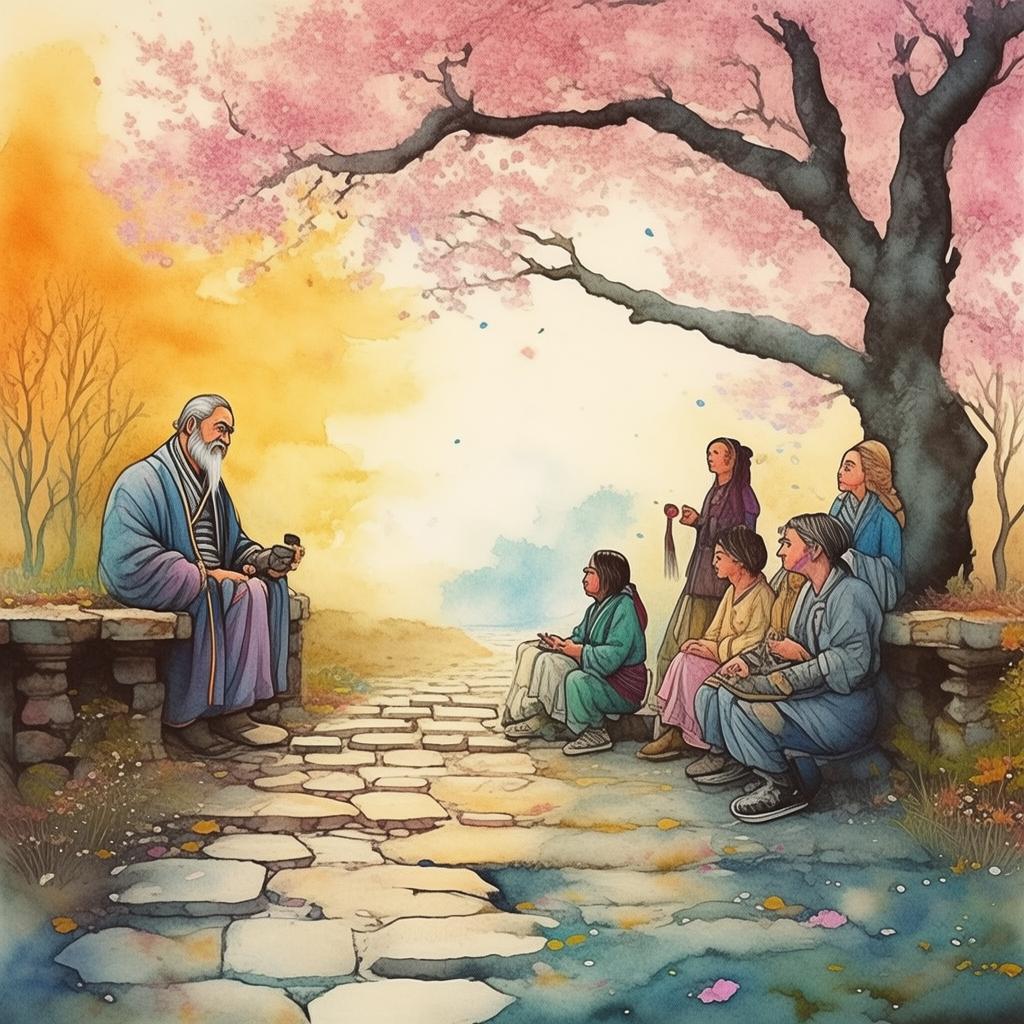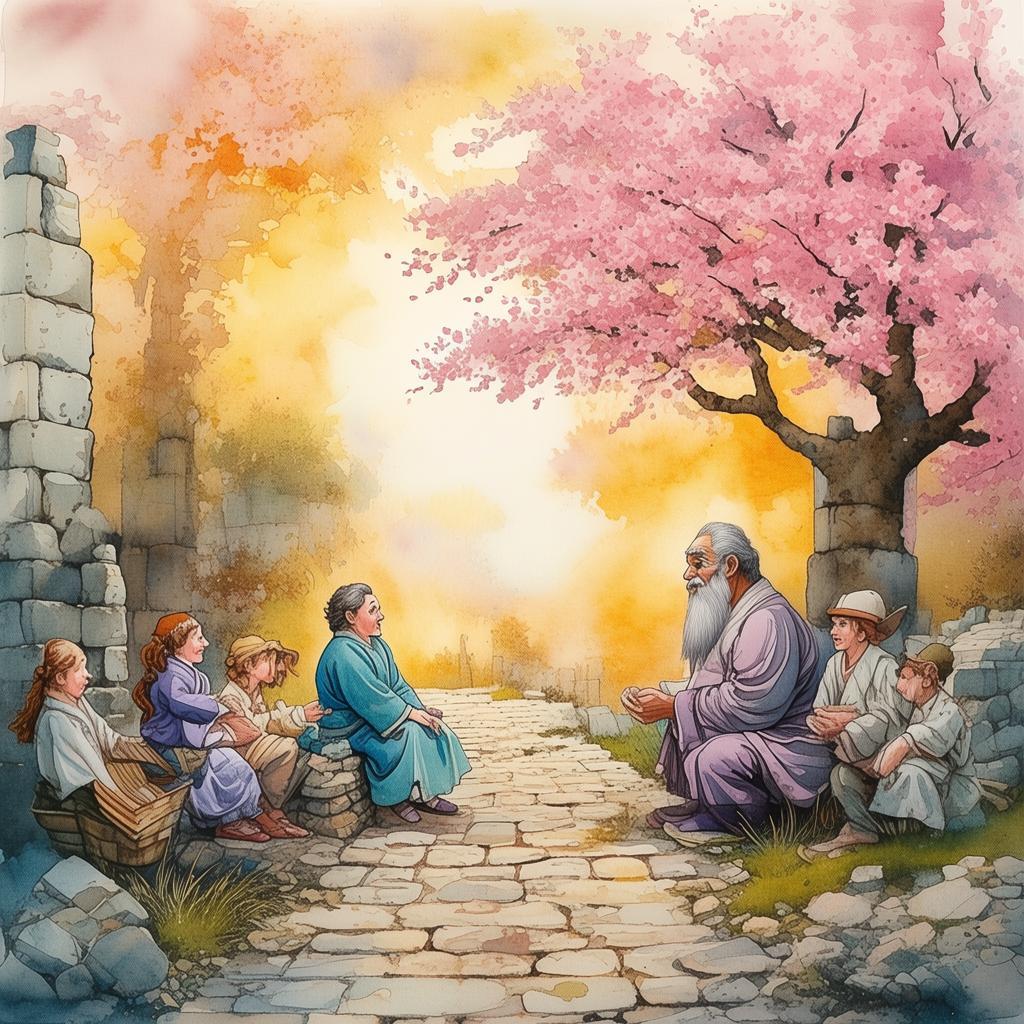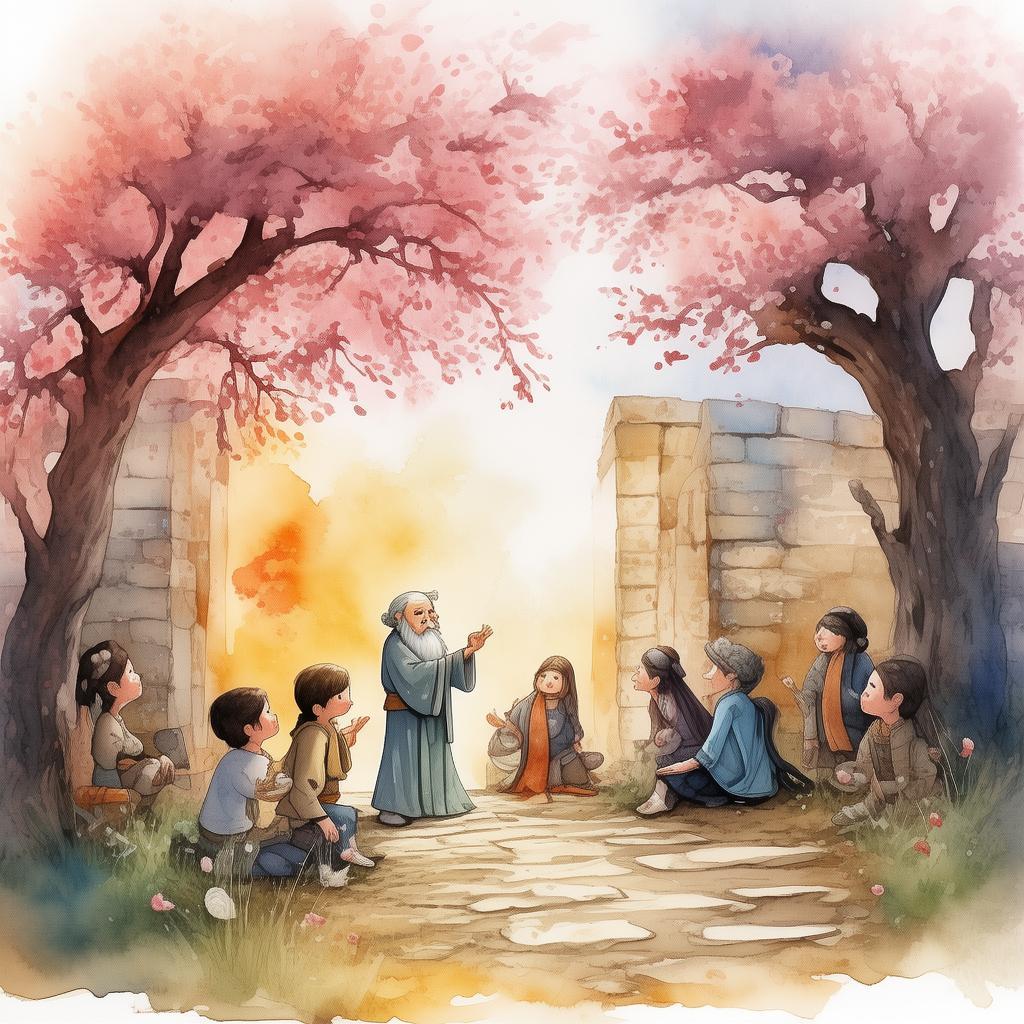The Monastery of Empty Pots: A Meditation on Suffering and Enlightenment
In the remote mountains of ancient China, there stood a small, desolate monastery known as the Monastery of Empty Pots. The monks there lived in extreme poverty, foraging for food in the barren hills and relying on the meager offerings from the few travelers who braved the treacherous path to reach their sanctuary. The monastery was named for its lack of material possessions, but more so for the emptiness that seemed to permeate every corner of the place.
One monk, known to the other monks as Master Jing, was particularly contemplative and deeply spiritual. He spent his days in meditation, seeking the truth behind the teachings of the Buddha. One particular day, as the sun dipped below the horizon and the temperature plummeted, the monastery was visited by a weary traveler. He approached the monk in the courtyard, his eyes reflecting the struggle of the journey.
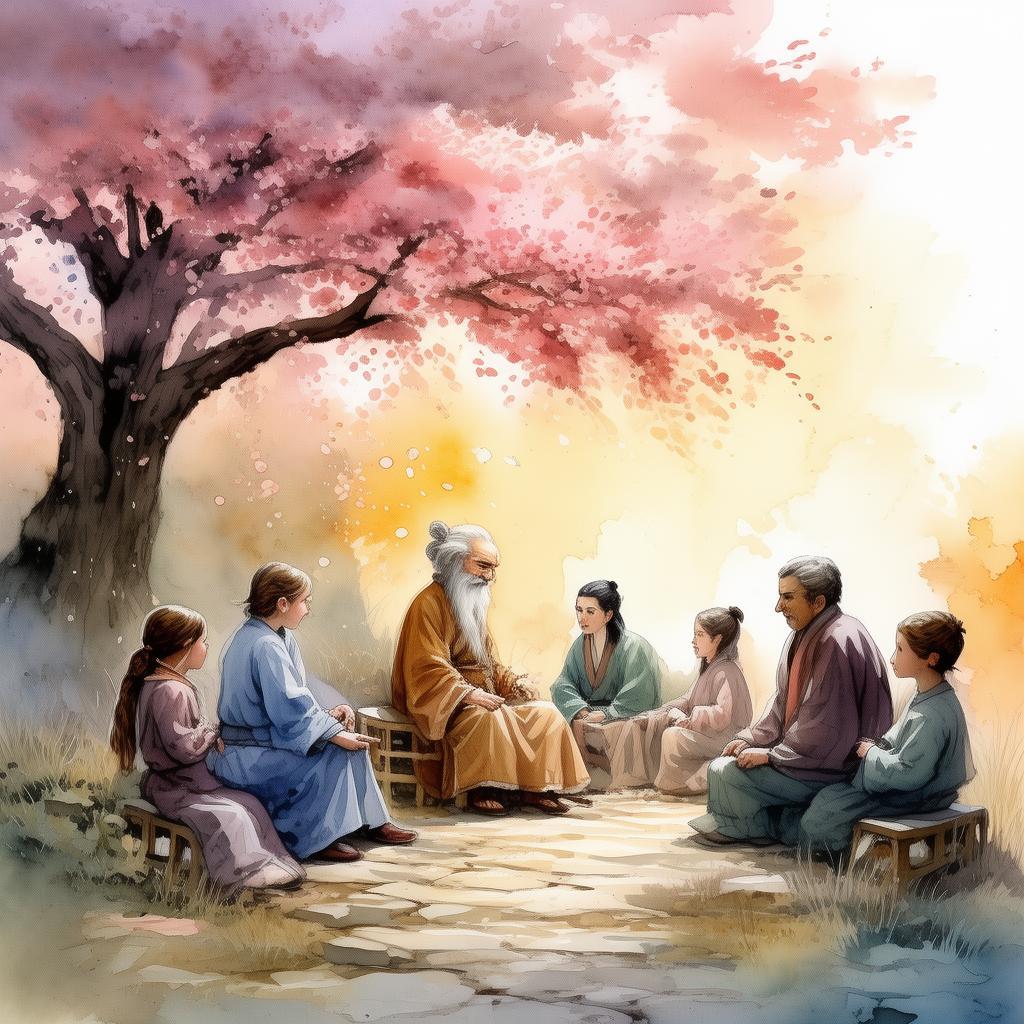
"Monk, I am famished. Can you spare some food?" the traveler asked, his voice barely above a whisper.
Master Jing looked at the traveler with compassion but shook his head. "I have nothing to offer you, my friend. The monastery is without sustenance."
The traveler's eyes filled with despair as he turned to leave. Master Jing, feeling the traveler's pain, decided to act. He rose and walked to the storeroom, which was, as always, empty. The sight of the empty pots was a stark reminder of the monastery's plight, but Master Jing saw something else in that emptiness.
Returning to the traveler, Master Jing spoke softly, "Follow me, friend. There is a way."
The traveler, intrigued, followed Master Jing to the meditation hall. There, Master Jing began to speak of the nature of starvation, not in terms of physical hunger, but in the emptiness of the mind. He spoke of the starvation of the soul, the emptiness that comes from seeking fulfillment in the material world.
As Master Jing spoke, the traveler listened intently. He realized that the monk was not speaking of a physical emptiness, but of a spiritual one. The traveler began to understand that the monastery's emptiness was not a sign of poverty, but of purity.
Master Jing continued, "In the emptiness, there is room for the infinite. In the absence of the material, we can find the spiritual. True fulfillment comes not from what we possess, but from what we give."
The traveler nodded, his eyes welling with tears. He had been seeking fulfillment in the world, but now he saw the truth. He turned to Master Jing and said, "I understand now. Thank you for showing me the way."
Master Jing smiled, his face alight with enlightenment. "You are welcome, friend. Now go forth and share this wisdom."
The traveler left the monastery, his spirit renewed. He shared Master Jing's words with others, and soon the monastery's teachings spread far and wide. The Monastery of Empty Pots became a place of spiritual refuge, a sanctuary where the true nature of starvation and enlightenment could be found.
Master Jing, now known as the Starving Monk, continued to meditate and teach, his wisdom guiding countless souls. He realized that the nature of starvation was not a curse, but a gift, a chance to find the emptiness that leads to fulfillment.
Years passed, and the Monastery of Empty Pots thrived. The monks lived in simplicity, their hearts full, their minds at peace. The Starving Monk's Meditation on the Nature of Starvation became a cornerstone of their teachings, a testament to the power of emptiness and the fulfillment it brings.
In the end, the Monastery of Empty Pots was not a place of want, but a place of abundance, a place where the emptiness of the material world was replaced by the fullness of the spiritual. And so, the Starving Monk's Meditation on the Nature of Starvation lived on, a story of enlightenment that resonated with all who heard it.
✨ Original Statement ✨
All articles published on this website (including but not limited to text, images, videos, and other content) are original or authorized for reposting and are protected by relevant laws. Without the explicit written permission of this website, no individual or organization may copy, modify, repost, or use the content for commercial purposes.
If you need to quote or cooperate, please contact this site for authorization. We reserve the right to pursue legal responsibility for any unauthorized use.
Hereby declared.
